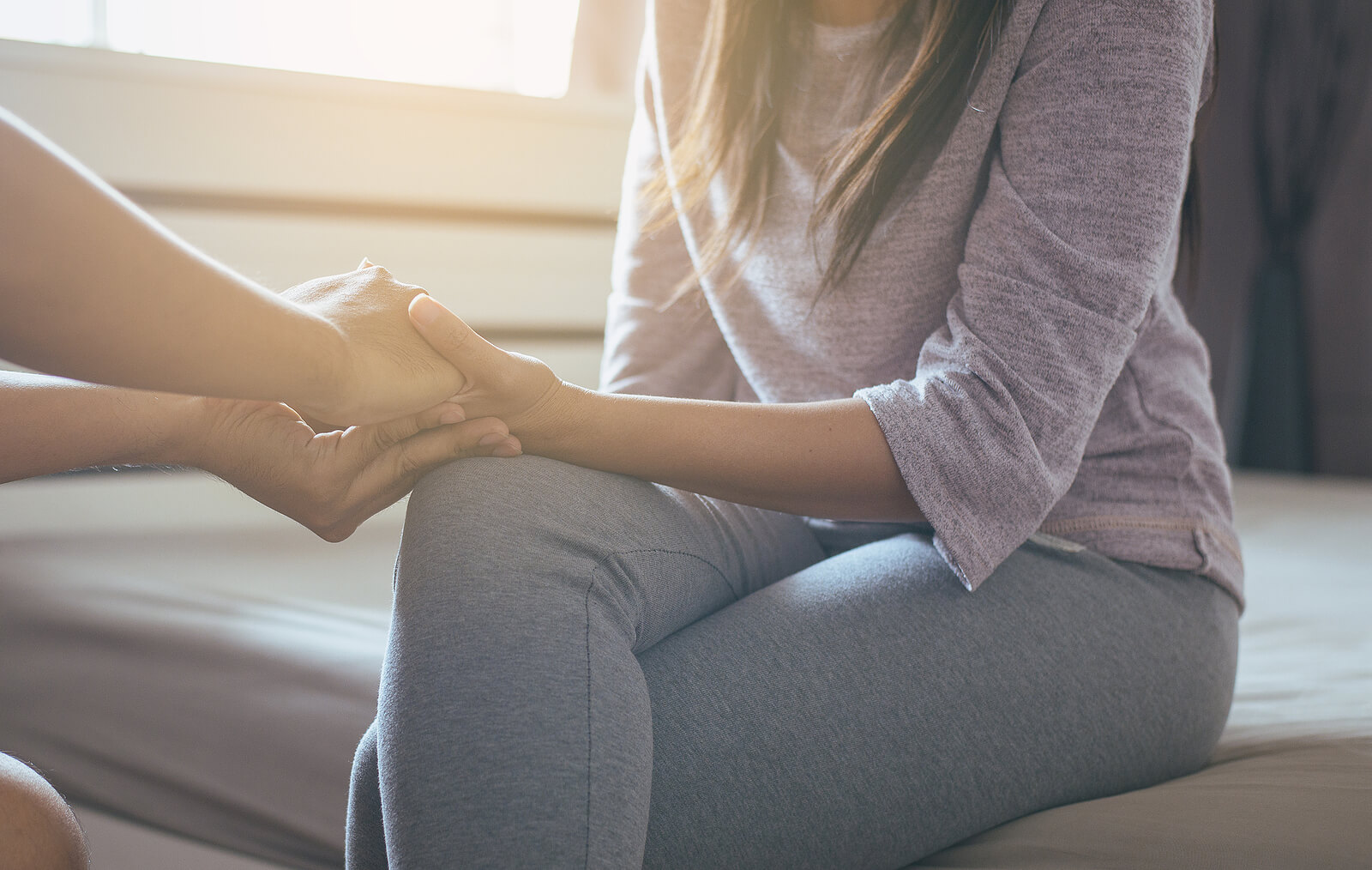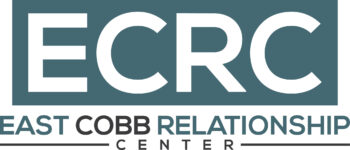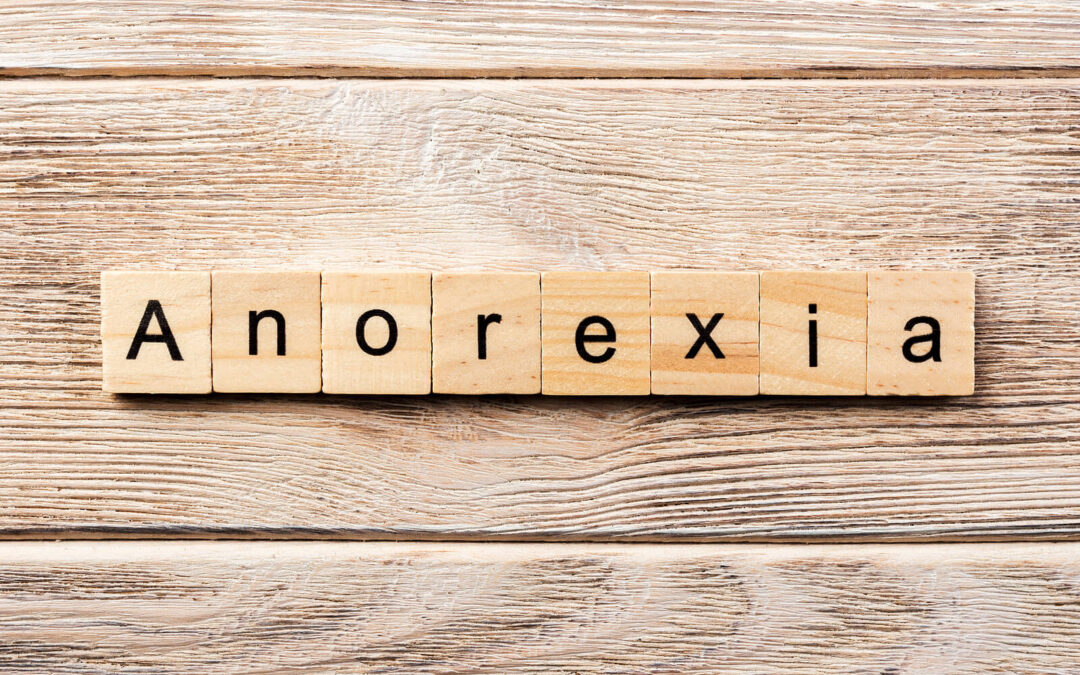Watching a loved one struggle with Anorexia Nervosa can create feelings of immense helplessness, sadness, and grief. At times, it can feel as if the person you care for is lost in their disorder. That their identity is now all-encompassed by what they are struggling with. You feel confused by their behavior and some of their thoughts and feelings.
It is important to recognize that everyone’s experience with an eating disorder is unique. There are some ways you can approach your loved one to provide them with support. You should find ways to make sure you are taking care of yourself as well.
What is Anorexia Nervosa?
Anorexia Nervosa is a psychological disorder characterized by extremely restrictive eating, fear of food, poor body image, lower body weight, low self-esteem, and excessive exercise. At times, other purging behaviors such as self-induced vomiting, taking laxatives, etc. Anorexia, like other eating disorders, comes with many physical risks. It also creates psychological pain and distress. Eating disorders are often described as mental disorders with physical side effects. It can be easy to think of them as solely physical disorders.
Anorexia is accompanied by a distorted way of viewing themselves, food, and eating. If these rules, rituals, or beliefs surrounding their disordered eating are broken, it can cause significant distress and discomfort. It is important to note that there is not one sole reason for Anorexia to develop. It is associated with past trauma, perfectionism, stress, high-pressure environments, and/or messaging about food and body image from family, society, and friends. If you recognize these signs in a loved one, it is crucial to reach out for professional help as soon as possible.

Ways to Support Your Loved One
Education
Anorexia is a complex disorder that comes with a lot of nuance and patterns. Things that can be difficult to understand or look out for. Due to the complexity of Anorexia, education is vital. Especially when approaching your loved one with the right method of support. Often, individuals struggling with Anorexia feel that they are alone and misunderstood. Educating yourself can provide them with a sense of being seen and heard. This is vital in maintaining trust and healing through the recovery process.
To further educate yourself on Anorexia, you can find information on our blog and Anorexia information page:
Find further information at the National Eating Disorder Association.
Encouraging Helpful Coping Skills
A large part of recovery is learning how to sit in the discomfort that comes with re-learning what it means to have a healthy relationship with your physical self and food. Through their personal treatment, they will learn various coping skills. Skills to help aid in the pain that comes with recovery and with day-to-day stressors. Coping skills often include Cognitive Behavioral Therapy (CBT), Dialectical Behavior Therapy (DBT), dietary and nutritional support, and medical guidance.
Limiting Language Surrounding Physical Size and Food Stigma
Our society holds onto strong language surrounding body image and body size. This often leads to a distorted sense of physical self that is validated by our culture. It is important to limit conversations that include language surrounding what is an “ideal body size,” weight gain, or weight loss. Eating disorders are notorious for taking already unhealthy ways of viewing body size and morphing it into fuel. Fuel to perpetuate eating disorder thoughts and behaviors. Rather than focusing on the physical qualities of your loved one and others, highlight their internal characteristics, strengths, and goals. This can be a great way to bring the focus back to the individual rather than their eating disorder.
Being intentional with language around food stigma is another way to best support your loved one. Stay away from using words like “healthy” or “unhealthy” food. Don’t categorize food as “good” and “bad” to consume, these words should be used as little as possible.

Remembering That Recovery Takes Time
There will be moments and periods throughout recovery where it appears that your loved one may be going backward. It is important to remind yourself and your loved one that recovery takes time and that recovery is not linear.
The patterns of recovery are often described as a series of loops rather than a straight line upwards. It is easy to feel discouraged when it seems like they are not moving in a direction of healing. Recovery can be a slow process, but do not give up hope that your loved one can have the life they deserve.
Take Care of Yourself
While your loved one is healing, it is important for you to heal too. Eating disorders not only impact the one you love but can be difficult for your family. As they are getting the help they need, you need to surround yourself with love and support as well.
Encouraging Professional Support Such as Anorexia Nervosa Treatment
It is vital to encourage professional help during recovery. Anorexia Nervosa treatment and recovery can be a difficult and painful process. Having a professional who is knowledgeable in eating disorders and the healing process is necessary. With the complexity of Anorexia, surrounding yourself with psychological support via therapy, as well as nutritional and medical support is necessary.
Watching a loved one struggle with Anorexia Nervosa can be painful. Supporting them and yourself in a way that is backed by education, self-care, and reaching out for professional help is important to the recovery process. At East Cobb Relationship Center, we are here to support you and your loved one throughout Anorexia Nervosa treatment and recovery. Visit our Contact Page to schedule a free consultation.
Begin Anorexia Nervosa Treatment in Georgia!
If you or a loved one are struggling with Anorexia Nervosa, find support with Anorexia Nervosa Treatment. At East Cobb Relationship Center, we’re here to help support and guide you in managing your Anorexia Nervosa. When you’re ready to get started, we’re ready to help. Here are the steps you need to take:
- Contact us to set up an appointment
- Meet with one of our caring therapists
- Find support and begin your healing journey.

Other Mental Health Services Offered At East Cobb Relationship Center
We know that mental health is important and challenges many individuals. Therefore, Anorexia Nervosa treatment in Georgia isn’t the only thing that East Cobb Relationship Center offers. Whether it’s individuals or couples, we have services for everyone. We also offer effective counseling for adults, teens, and young adults suffering from eating disorders, depression, therapy for enmeshed men, and anxiety treatment. Our therapists also specialize in couples counseling, emotionally focused therapy, dialectical behavior therapy, and affair recovery. To learn more about East Cobb Relationship Center check out our FAQs and blog!

